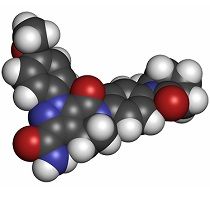NOAC Showdown: Apixaban Comes Out on Top in MAYO Clinic Study
In a comparison of three non-vitamin K antagonist oral anticoagulants (NOACs), apixaban, dabigatran, and rivaroxaban provided similar levels of stroke prevention, but apixaban was least associated with instances of major bleeding.

Compared to “cumbersome” warfarin treatment, which requires consistent blood testing and a diet regimented by its multiple interactions, newer blood thinners used to treat atrial fibrillation (AF) appear to be “at least as good” at preventing stroke with less risk of complication. Recently, the MAYO Clinic took a look at data from patients using these treatments to measure them against one another.
Non-vitamin K antagonist oral anticoagulants (NOACs), as they are called, include dabigatran, rivaroxaban, and apixaban, and have been heavily researched in recent years. Using data from OptumLabs Data Warehouse spanning from October of 2010 until February of 2015, the researchers assembled three cohorts that compared the drugs to one another head-to-head, with over 31,000 in the rivaroxaban versus dabigatran matchup and over 13,000 in both the apixaban versus dabigatran and apixaban versus rivaroxaban comparisons.
Overall, they found little difference in the individual NOACs’ abilities to prevent stroke and systemic embolism, without the obvious inconveniences associated with warfarin.
With blood thinners, however, a major concern is always bleeding. Among the three peers, apixaban was associated with the least instances of major internal bleeding, followed by dabigatran. Patients on rivaroxaban were seen to suffer the most bleeding in all cohorts. These findings regarding apixaban are consistent with other recent research of NOAC effectiveness and bleeding.
Citing the breadth of the cohorts involved, Peter Nosewothy, MD, one of the paper’s authors, speaks with confidence about the results in a press release. “These data sets were very large and show that apixaban users have less major bleeding incidents; whereas, rivaroxaban had higher likelihood of serious bleeding than either of the other two NOACs. Apixaban also seems to provide better results than warfarin,” he says.
Despite this, he cautions against AF patients making any unilateral decisions about their prescribed treatment without consulting their doctors. Time and further studies will be needed to hone in on precisely how well each of the NOAC treatments prevents stroke while avoiding dangerous side effects.
The study was published on September 28th in CHEST.
Related Coverage:
Apixaban Compares Favorably with Warfarin in Safety, Efficacy
Sigrun Halvorsen, MD: Comparing Bleeding Rates in Non-valvular AF Patients Prescribed Anticoagulants